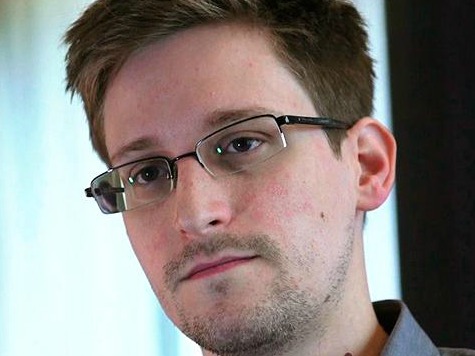Tracing their common lineage from the world’s oldest profession, the new western media and the old KGB share a key character trait: They will gladly sleep with you but certainly won’t respect you in the morning.
Edward Snowden is only the latest case in point. Like most traitors, he probably didn’t begin his misadventures intending to deceive his country. The national-security bureaucrats who granted his security clearance found nothing in the young computer nerd’s background to excite suspicion. Of course, they rarely do, political correctness having long since dulled the edges of western counterintelligence. Once admitted to the realm of secrets, Snowden was seduced by the apparent ease of espionage – exactly like ex-PFC and ex-Bradley Manning, whose preferences similarly eluded other “investigators.”
Snowden found that the wonderful new age of electronic intelligence had erased earlier disciplines. Back in the Luddite era, a security clearance was a privilege, not a right. Even then, it was always subject to the baseline disciplines of “need to know” and tough suitability criteria that could be yanked in an instant. Though only a lowly contract employee, Snowden easily penetrated the privileged electronic sanctums of the National Security Agency, where eavesdropping on civilians (once a court-martial offense) had apparently become routine.
Full disclosure: At least four former NSA Directors have been personal friends, including the last one: General Keith Alexander, my student at the National War College. All understood perfectly well that the NSA operates under tight strictures of law, regulation and intrusive oversight by overlapping executive and legislative bodies. Included in the mix are not only various inspectors general but also whistle-blower statutes meant as a last-ditch resort to prevent cover-ups and discourage any abuse of power.
These resources were available had Edward Snowden been concerned with protecting American civil liberties. But the Manning/Wikileaks fiasco offered endless possibilities, both for Snowden and a media establishment anxious to suborn espionage under the glorious banner of “the public’s right to know.” Wikileaks had caught them flat-footed, an upstart blogsite from nowhere suddenly hogging the headlines – and on turf the media establishment considered its sole preserve.
Those embarrassments were righted last Monday, when the Washington Post won two Pulitzers for its coverage of Snowden’s revelations. Its editor crowed that without him, “We never would have known how far this country had shifted away from the rights of the individual in favor of state power. There would have been no public debate about the proper balance between privacy and national security.” But another journalist, Edward Lucas of The Economist, argues in a recent article that “the theft and publication of secret documents” is little more than garden-variety treachery, “reckless self-indulgence, with disastrous consequences. Snowden and his accomplices deserve censure, not applause.”
Almost un-noticed in the controversy was Vladimir Putin, who didn’t invent Edward Snowden but, as a seasoned KGB case officer, knows a patsy when he sees one – and quickly offered Snowden political asylum. Russian spymasters were thus in position to demand whatever beans had not already been spilled. “Comrade Edward, which electronic linkages was the NSA able to exploit most easily? Which specific techniques were most useful in identifying even weaker links in a target network?”
As if determined to prove that cluelessness can be terminal, Snowden even turned up last week on a Russian television show to ask Putin about mass surveillance. According to the Guardian, Putin replied, “Our intelligence efforts are strictly regulated by our law… We don’t have a mass system of such interception and – according with our law – it cannot exist.”
As is his custom, Putin answered with a perfectly straight face. But who could blame him had he added: But as for you, Mr. Snowden, now that we know what you are, please be content with the price you have already been paid.
Colonel Ken Allard is a prominent national security commentator, retired intelligence officer and a former on-air military analyst with NBC News.

COMMENTS
Please let us know if you're having issues with commenting.